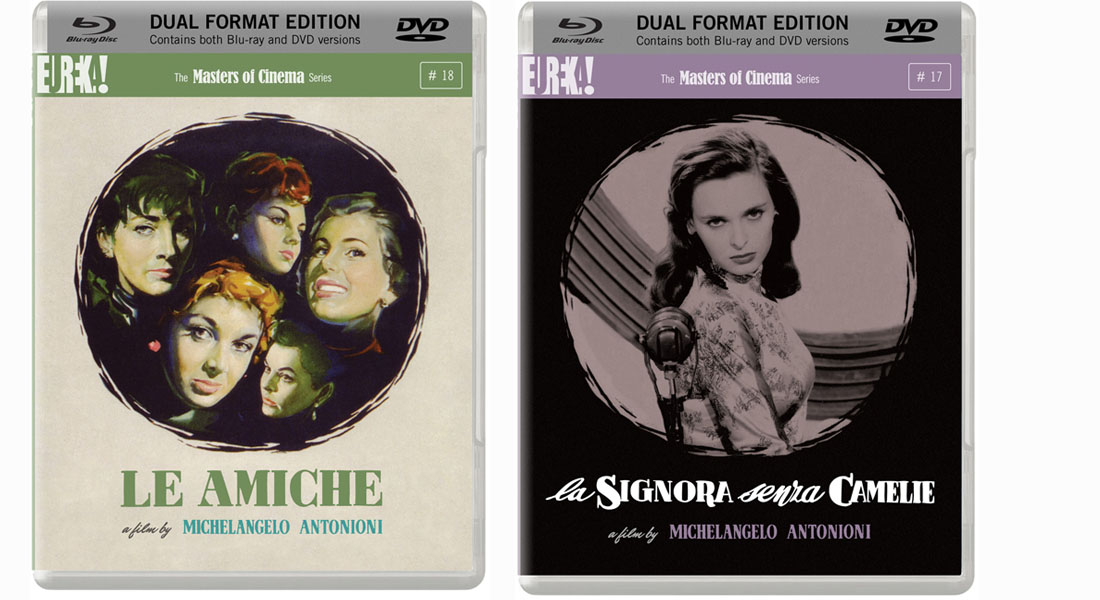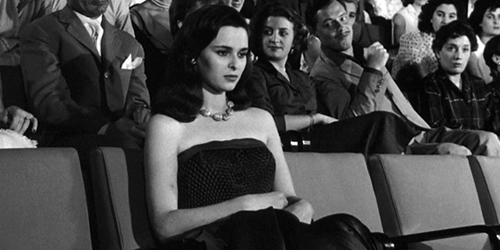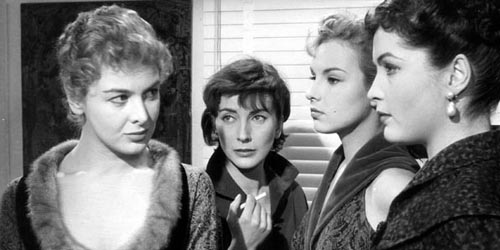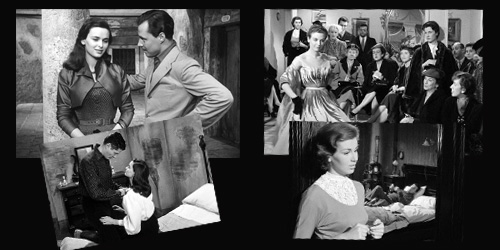Pete's Peek | Get a taste of 1950s Italy with Masters of Cinema's new Michelangelo Antonioni releases

Michelangelo Antonioni, who died in 2007, belonged to that elite group of Italian film-makers who made a huge impact on world cinema following the Second World War. Best known for maverick fare like L’avventura, Blow Up and Zabriskie Point in the liberated 1960s and 1970s, Antonioni actually honed his unique vision in a series of wry character studies of Italian mores in the conservative 1950s.
Adding to their Antonioni collection, Eureka! are releasing newly restored versions of two significant features in their amazing Masters of Cinema series in which the director moved away from neo-realism - the dominate style of 1940s Italian cinema – to try his hand at new techniques of story-telling.

1953’s La signora senza camelie (The Lady Without Camelias) – one of the most insightful films about cinema ever made – tells the story of a former shop assistant called Clara Manni (Lucia Bosé) who finds herself thrust into movie stardom. Clara has incredible beauty, but little talent or assertiveness to survive in the male-dominated film-making world that Antonioni portrays as fickle, frivolous and lacking in soul. But despite the disappointments and humiliations Clara encounters in both her career as an actress and in her loveless marriage to the wealthy, jealous Gianni, she is a woman whose inner resilience shines through.
La signora senza camelie - a play on Alexander Dumas's famous romantic work, The Lady of the Camellias - is a carefully-crafted character study about a woman out of sorts with her environment (a theme that would recur in Antonioni's subsequent works). It's also an opportunity for the director to poke a stick at the film-making process - in particular, Rome's Cinecittà – making this a great companion piece to Minnelli's Hollywood melodrama The Bad and the Beautiful (made the previous year) and Godard's introspective art piece Le Mépris (made a decade later).

1955's Le amiche (The Girlfriends) looks like a rehearsal for Antonioni's masterworks. Adapted from Cesare Pavese's novella, Le amiche charts the story of Clelia (Eleonora Rossi-Drago), a successful dressmaker who returns to her native city of Torino (Turin) where she becomes involved with a group of wealthy women. But she soon finds herself torn between the conservative world of her working-class origins and the glamorous environment in which she now resides. It is only when one of her new friends commits suicide that she realises she belongs in neither.
In this character-driven snapshot of the lives of five women, Antonioni experimented with a radical new style which would become his trademark: instead of the normal narrative structure, he presented a series of seemingly disconnected events - often using long, carefully framed, takes. This gives him the chance to explore each character and their own personal journey. It's a tad stagy and experimental (his ideas would finally pay off in 1960's L’avventura), but remains absorbing.

Both La signora senza camelie and le amiche address the role of women in modern society. Over half a century later, they still have something to say and are now a window on an Italian landscape (both human and otherwise) that has changed so dramatically over time. For cineastes familiar with Antonioni's better-known works, this pairing is the epitome of the director's 1950's period.
The latest updates, reviews and unmissable series to watch and more!
Available for the first time ever in the UK in a new restoration, and both in a Dual Format Edition, these releases include an array of special features that will certainly be of interest to any budding film historians out there. For more information, head over to Eureka's Masters of Cinema series website.
Released 21 March

